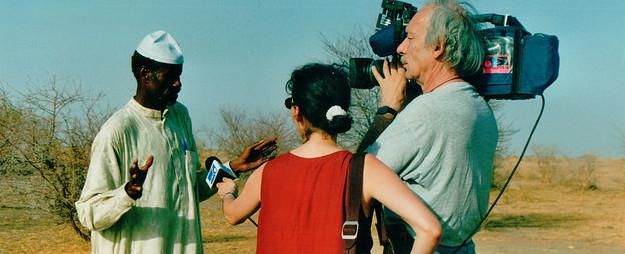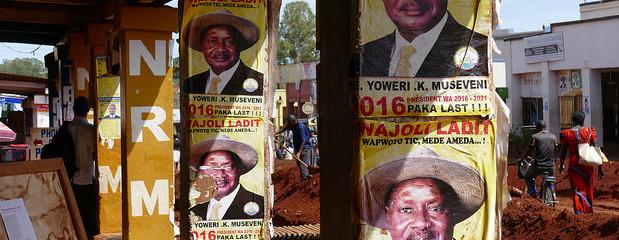What if Ocampo Indicts Bashir? 7
Part 2 of a 2-part contribution.
In this, my second contribution to the debate over what would happen if Luis Moreno Ocampo, the Chief Prosecutor of the International Criminal Court (ICC), were to indict Sudan’s President Omar al Bashir on charges relating to Darfur, I consider the implications of an indictment revolving around a theory of liability that in recent years has become known as “joint criminal enterprise” (JCE).
As mentioned in my previous contribution (posted on June 20, 2008), judging by the language employed in Moreno Ocampo’s briefing of the UN Security Council on June 5, 2008 as well as in previous pronouncements and court documents, notably the Office of the Prosecutor’s (OTP) hefty Application under Article 58(7) of the Rome Statute, and the subsequently issued Warrant of Arrest for Ahmad Harun and Ali Kushayb, which a three-judge panel of Pre-Trial Chamber I confirmed on April 27, 2007. I shall focus on language first, then the exigencies of international law.
Especially interesting in the 94-page document that comprised the February 2007 OTP Application under Article 58(7)””an application requesting state cooperation in preparation for the issuance of an arrest warrant””is Annex 1, a spreadsheet detailing the charges and 51 counts against Harun and Kushayb elaborated in the main text. In pursuit of 41 out of 51 Counts, the OTP proposes to rely on JCE as theory of liability. In other words, rather than proposing to charge Harun and Kushayb for the “commission” of international crimes (only invoked as theory of liability for Counts 7, 16, 25, 27, 29, 31, 33, 45, 47, and only in the case of Kushayb) or the “inducement” of international crimes (invoked once vis-í -vis Harun for Count 37), Moreno Ocampo and his prosecutors have evidently far more confidence in the payoffs associated with the invocation of JCE. Let us consider this newest and most controversial of all liability theories in more detail, for it is by far the most likely””and promising””strategy to be pursued by the Chief Prosecutor if he opted””and would receive the backing””to put President Bashir on trial in The Hague.
As mentioned in my previous contribution, the doctrine of JCE is a relatively recent addition to international law. The neologism was coined, and the doctrine invented (save for some elements that hark back to Allied prosecutions in the wake of World War II, notably those having to do with the prosecution of concentration camp personnel), in the 1999 Tadić Appeal Judgment coming out of the ICTY, the International Criminal Tribunal for the Former Yugoslavia. The Presiding Judge in the case was Antonio Cassese, who, incidentally, headed the maligned 2005 International Commission of Inquiry on Darfur to the United Nations Secretary-General.
The aforementioned Application under Article 58(7) speaks of a “common purpose” that Harun and Kushayb and their presumed accomplices had while allegedly perpetrating international crimes in Darfur. JCE is also known as the law of common purpose (a notion germane to most common law jurisdictions). If one scans the text of Moreno Ocampo’s briefing of the UN Security Council earlier this month, the following sentence stands out: “The entire Darfur region is a crime scene.” Moreover, according to the Chief Prosecutor, the perpetration of international crimes there “sustained mobilization of the entire State apparatus.” These and other carefully chosen words are telltale signs that the OTP is laying the ground work for submitting””whether in the prosecutions of Harun and Kushayb, a possible prosecution of President Bashir, or any other future ICC proceedings having to do with the atrocities perpetrated in Darfur””that one or more JCEs were in operation in Sudan over the course of the conflict in the western part of the embattled country. This would be the most efficient way to prosecute members of the higher (as well as lower) echelons of the Sudanese state for international crimes relating to the situation in Darfur. Why should this be so?
President Bashir, Sudan’s head of state, may very well be directly responsible for the perpetration, whether by commission or omission, of international crimes in Darfur. However, the OTP knows, not least from the difficult Milosević trial, that it is nigh impossible to demonstrate as much in a court of international law. For this reason, the OTP’s best bet is to prosecute the President of Sudan for acts by another. This is where JCE, notably its so-called third category, comes into play. The objective in relying on JCE as a form of liability is usually to demonstrate guilt by association.
At this stage, a brief, technical summary of the contemporary law of JCE is in order. The actus reus (the requisite “bad acts”) for all categories of JCE is constituted by a plurality of persons, the existence of a common plan that amounts to or involves the commission of a crime provided for in the Statutes of the ad hoc tribunals, or, in our case, the Rome Statute; and participation of the accused in the perpetration of the common plan. The mens rea (the requisite “guilty mind”) is a more complicated affair and varies with the category under consideration. The first and second categories (the latter is a variant of the first) require, in essence, the intent to perpetrate a certain crime. The third category requires the intent to participate in and further the common plan and to contribute to the JCE or in any event to the commission of a crime by the group. In addition, and this is what makes the third category so controversial, if a crime was committed that fell outside the plan of the JCE, liability may attach to an individual provided that the further crimes was a possible consequence in the execution of the JCE, and that the accused willingly took the risk that one or other members of the JCE might perpetrate a crime outside of the original plan. Regarding the third category, the ICTY Appeal Chamber recently provided an illustration in Prosecutor v. Mitar Vasiljević:
An example is a common purpose or plan on the part of a group to forcibly remove at gun-point members of one ethnicity from their town, village or region (to effect [sic] “˜ethnic cleansing’) with the consequence that, in the course of doing so, one or more of the victims is shot and killed. While murder may not have been explicitly acknowledged to be part of the common purpose, it was nevertheless foreseeable that the forcible removal of civilians at gunpoint might well result in the deaths of one or more of those civilians.
In the case of President Bashir, Moreno Ocampo would be hard-pressed to marshal specific evidence that links the long-time ruler of Sudan directly to any of the international crimes””especially genocide””for which the latter could soon be indicted. However, the ICC Prosecutor could try to obtain a genocide conviction via the indirect route of JCE. Conceivably, the OTP could argue (and this is merely an example) that President Bashir, together with, say, Harun and others in 2003 formed a common plan to forcibly transfer (“forcible transfer” is a crime against humanity under international law) as part of its July counteroffensive civilians from Darfur in order to quell the insurgency of the rebels there, the Sudan Liberation Army. Relying on the logic of the aforementioned “third category” of JCE, the OTP might submit, furthermore, that genocidal acts were also committed in Darfur and that the perpetration of these acts was a natural and foreseeable consequence of the common design hatched by Bashir et al., and that he, Bashir, willingly took the risk that one or other members of his JCE might go beyond the original plan of “only” forcibly transferring civilians from Darfur. If the OTP could demonstrate as much, Bashir might find himself with the back against the wall.
However, even if the OTP could furnish evidence that international crimes not originally part a common design were committed by a JCE of which President Bashir was a member, the thorny legal question arises as to whether an individual can be held individually criminally responsible for genocide absent the requisite specific intent on his part or hers, i.e., the intent to destroy, in whole or in part, one of the protected groups, as such. This question remains unsettled in international law, although many practitioners at present would likely answer in the negative. Given this, it would seem that a prosecution of the President Sudan on genocide charges””at least if based on a theory of liability revolving around JCE””would most likely be unsuccessful. This is not to say that the doctrine of JCE would not be a powerful vehicle for obtaining a conviction of Sudan’s head of state for war crimes or crimes against humanity, or both. But this is a topic for another day.
By way of conclusion, allow me to offer a word of caution. Notwithstanding the importance of JCE for finally reaching into the higher echelons of rogue states, the principle of individual criminal responsibility””a fundamental principle of international law””could be hollowed out by an uncritical reliance among prosecutors on the doctrine of common purpose in the prosecution of international crimes. JCE, not unlike RICO (Racketeer Influenced and Corrupt Organizations) conspiracy in the United States, runs the risk””in Darfur and elsewhere””of being used as a “dragnet” with which to catch perpetrators who otherwise are beyond the reach of international law.
Jens Meierhenrich is Assistant Professor in the Department of Government, Harvard University.






